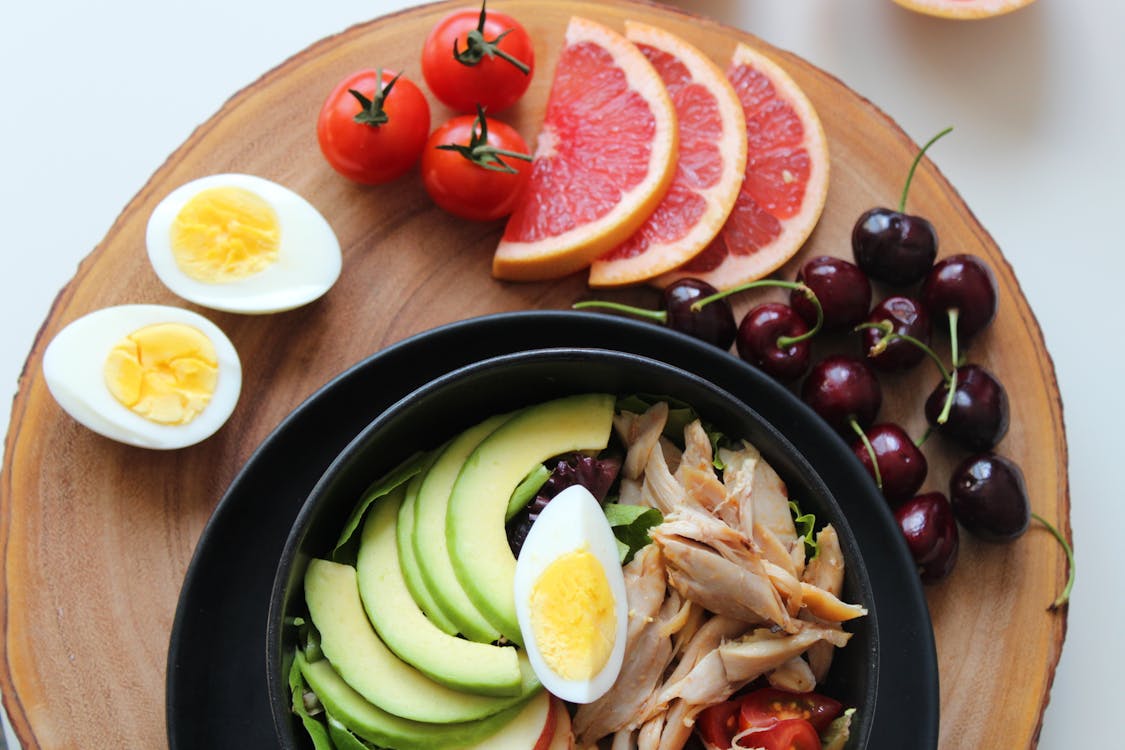
Intermittent fasting is all the rage these days because many fit-fluencers attest that it works, and it’s also backed by science. However, intermittent fasting is sometimes controversial, because it goes against the old adage: breakfast is the most important meal of the day. How can a diet that goes against tradition and asks you to skip breakfast, actually work? When your stomach is empty, you have no fuel to jump-start your day – or so it may seem.
Intermittent fasting is a type of diet plan that switches between an ‘eating window’ and ‘fasting mode’ on a scheduled basis, hence its name. While other eating plans are centered on what foods you eat, intermittent fasting is designed to focus on when you eat, and how frequently you eat. The fast allows you to consume all your sugar stores, eventually leading your body to access your fat stores for energy, often resulting in weight loss and better health.
You may be wondering whether intermittent fasting (IF) is safe to do, as the word “fasting” does not always have a positive connotation. Do not fret, because IF is backed by science. Neuroscientist Mark Mattson from Johns Hopkins, a researcher on intermittent fasting, has shared that the human body has evolved to be able to sustain itself without food for many hours, several days, or even longer. In fact, our prehistoric hunter-and-gatherer ancestors had to go for long periods without eating, and humans evolved with the ability to go long periods without food. It’s water we can’t go long periods without, not food.
Today, unlike our active and nomadic ancestors, we spend more time sitting down to work, watching tv, and entertaining ourselves on social media. Additionally, with innovations in agriculture and food development, we’ve become accustomed to calorie-ladened but nutritionally-poor fast foods with humongous portion sizes. This has made it much easier for humans to gain weight and, in some cases, become obese, leading to a myriad of other health issues. Intermittent fasting is a safe way to ensure your body stays healthy, and it helps you avoid eating excessive calories. Below are 10 intermittent fasting tips for those who are new to this diet plan:
1. Decide Which Type of Fast Suits You Best
When your body is in a fasting state, it means the body has exhausted the sugar it gets from food, so it proceeds to break down fat and release ketones into the body which spurs weight loss. When in a fasted state, instead of sourcing energy from glucose, the body can become a fat burning machine. There are several approaches to IF where the fasting window ranges from 10 hours to 18 hours, alternate days fasting, or even a 24-hour cleanse. Fasting windows work differently for each individual. Beginners are advised to try the shortest fasts as their body acclimatizes to a new eating pattern. And from there, they can increase the fasting times.
If you are looking to jumpstart your IF journey, you can try the most popular 16-hour fast. Essentially, you fast for 16 hours, and your eating window is about 6 – 8 hours. Your eating window could therefore be from 9am to 5pm, or 12pm to 8pm if you are not an early bird. If this is too extreme for you, you can reduce the fasting hours to at least 10 hours to give you a 14-hour eating window. Ten hours is the minimum fast that stimulates fat usage.
Again, you can gradually increase your fast hours once you have gotten accustomed to intermittent fasting. You may even go beyond the 16-hour fast if you wish and are capable. Others opt to start with alternate days of fasting to introduce their body to the rhythm of fasting. There is also the option to do 24-hour fasting, where you eat one day and stop the next.
The type of fast that seems to have the most positive reviews in terms of weight loss results is the 16-18 hour fast per day, with a 6-8 hour eating window each day.

2. Tailor Fit Your Fasting Schedule to Your Needs
Even if most people tend to start their eating window earlier and cut themselves off from eating after 6pm, if that doesn’t work for you because you’re a night owl, do it your own way. Tailor your fast to your needs and preferences. After all, you know your schedule best, so your eating habits must also be tailored to your lifestyle.
Those with a late chronotype likely need their eating window to start in the afternoon and end in the evening. You know when your body tends to ‘need’ food, so tailor your fasting schedule to your body.
3. Know What Breaks the Fast, and What Does Not
One of the most important intermittent fasting tips to remember is that things you might not expect, like diet sodas, can break the fast. When doing IF, your goal is to fast from all foods and artificial sweeteners, including any drinks with caloric or hormone-inducing content. These foods and beverages must be avoided to allow your body to access your fat stores. When you know what you can or cannot eat and drink, you can make informed choices and ensure you see results from IF.
Most beginners make a mistake of believing zero-calorie, artificially flavored drinks do not count. However, the spike in hormones from artificial sweeteners will trick your body into thinking you’re no longer fasting. During fasting mode, you can only consume water, plain herbal tea, lemon water, or black coffee. In other words, you can’t have any sugar, artificial sweetener or dairy in your beverages. Diet sodas must be avoided as they spike a hormone that tricks your body into thinking the fast has broken.

4. Avoid Thinking About Food by Staying Busy
Scrolling through dessert menus or watching mukbang eating videos while on your fast will not help, especially when you are just starting out. Part of IF is reinventing your perceptions of food. You choose healthy food that fuels your body. Since you only eat during a certain window, you prioritize delicious and nutritious food that you enjoy.
While you’re fasting, you should avoid thinking about food by getting outside, going for a walk, calling a friend, getting some work done, or tidying your home. One of the best intermittent fasting tips is learning the best distractions from food during the time you’re not allowed to eat. If you’re sitting on your sofa bored, or you’re watching TV, you’ll be tempted to eat out of boredom.
Find ways to distract yourself from thinking about food, may it be through work or various hobbies. Before you know it, you won’t be obsessing about food any longer. Add it would be much easier to adopt the classic mantra: you eat to live, not live to eat. Studies show that having healthy perceptions about food and practicing healthy eating behavior are essential determinants for your overall health.
5. Set Reminders to Notify You When Your Eating Window Begins and Ends
It is easy to get lost in time, especially when you are running on a busy schedule with work, family, chores, and community obligations. Of course, this must also include some much needed rest and relaxation so you don’t burn out. Busy people may need additional help keeping track of their fast.
Time your eating by using a timed watch, a phone timer, or a written reminder. Doing so will ensure that you stay on your schedule and not break your fast. Otherwise, your body will revert to burning glucose instead of fat. If you want to succeed with IF, consistency is key.

6. Stay Hydrated: Remember to Drink Water While You’re Fasting
Drink as much water as you like while you’re fasting. You must only avoid beverages with calories or hormone-spiking components like diet soda or gatorade. You can still drink water, lemon water, tea, and black coffee.
In fact, it is highly encouraged that you take these calorie-free drinks throughout the day to keep your body hydrated. After all, when you’re thirsty, you’ll feel hungrier.
7. Temper Your Environment
Trying anything new is difficult the first time around, but, with the right environment, it become a bit easier. If you are just getting started on IF, temper your environment. Avoid having snacks within reach. Intermittent fasting tips to remember involve making food hard to access. Avoid overstuffing your fridge and pantry with temptations.
If you have children, it may be difficult to keep your pantry free from snacks. So instead of keeping the usual chips and cookies, focus on quality snacks like whole wheat crackers with nut butter, air popped corn, yogurt, and the like. You can also make healthier versions of your favorite treats. It would also help if you inform mature members of your household so they can support your journey, keep you accountable, and cheer you on to stick to your IF eating plan.

8. Don’t Just Eat Whatever You Want During Your Eating Window
If you are hoping to shed some weight from doing IF, or just want to live an overall healthier lifestyle, start by ditching the junk. Eat nutrient-dense food, as these will not only keep you fuller for longer, but will also provide your body with the nutrients for cell regrowth and energy restoration.
If you want to lose some weight, you can’t just eat whatever you want during your eating window. You need to eat healthy, nutritious food during your eating window. It might help to combine intermittent fasting with a healthy diet, such as the Keto diet.
If you are battling with the misconception that healthy and whole foods are not tasty, remember that it is all in the preparation. Season your food with pepper, garlic, onion, and other spices and vegetables to create gustatory feasts that satisfy your stomach. Moreover, health experts advise that you eat plenty of vegetables, protein, healthy fats, and some carbohydrates during your eating window.
9. Take Time to Workout
In fasting mode, your body is able to use fat stored in your cells as fuel, so you’re burning fat instead of storing it, which leads to weight loss. Do you still burn fat on IF even if you are sedentary? Yes, to an extent, because the body will need energy for basic metabolic processes like digestion.
Regardless of whether you work out, if you stick to your fast, your body will still use up its fat stores while you’re fasting. However, you will quickly see better results when you add exercise into your daily routine, as exercise speeds up the fat burning process.
That said, how do you work out on an empty stomach or while you are fasting? Is it safe to workout on an empty stomach? Yes, but listen to your body. Generally, it is recommended to workout before your first meal, traditionally breakfast, while your body is in its fasted state. So, it is safe to work out while on IF. The theory is that your body uses up stored fat and carbohydrates for energy instead of food, whereas exercising after eating would cause your body to use the food you ate as fuel. Best of all, doing an early workout may keep your mind off your stomach because you’re busy.
If you do head to the gym before eating, while you’re still in a fasted state, be sure to bring a granola bar or some gatorade with you, just in case you feel faint. Stop exercising if you feel dizzy. Most people should be okay exercising on an empty stomach, but listen to your body.
Working out before eating, though optimal for weight loss, may not work for everyone. In this case, working out after eating is just fine. Note, as well, that exercising on an empty stomach may lower your stamina and blood sugar levels, especially at the beginning. But, as time goes by, your body will adjust to using fat stores for energy when you are on IF.
Some intermittent fasting tips to remember include exercising when you feel capable of it, not when you feel faint, and always listening to your body.
10. Consult a Doctor or a Professional Nutritionist
One of the smartest intermittent fasting tips is to consult with a professional dietician or nutritionist before you start. Fitness coaches, dietitians, doctors and nutritionists could help you design an intermittent fasting schedule that fits your lifestyle and may even help you with meal planning for optimum results.
Before starting any new diet or eating regimen, always consult a professional. This is especially important if you have pre-existing health conditions such as diabetes or hypertension.
When it comes to a new diet plan, you can also make a more informed decision with genetic insights from CircleDNA regarding the optimal diet for you, based on your genetics.






